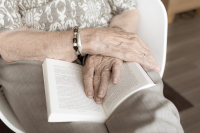Among those affected is the 80-year-old Prague President, Bohuslav Svoboda, highlighting the indiscriminate nature of this resurgence. Svoboda’s participation in a health committee meeting while undergoing antibiotic treatment has sparked a wave of controversy and debate about the responsibilities of public officials during a health crisis.
The Challenge of Vaccination Against Pertussis
Despite mandatory vaccination policies, there is a noticeable lapse in the complete immunization of children against pertussis in Czechia. Official figures suggest that while 97% of infants receive the initial three doses of the vaccine, the completion rate for the full series of shots drops to 90%. Health Minister Vlastimil Válek attributes the current outbreak to a combination of the lifting of COVID-19 restrictions and the incomplete vaccination of children, underlining the complexity of managing public health in the post-pandemic era.
Public Health at a Crossroads
Pertussis is known for its severe cough, runny nose, and throat pain, posing the highest risk to infants and the elderly due to their vulnerable immune systems. The swift rise in cases within Czechia poses a severe threat, especially to these groups, and calls into question the effectiveness of current health policies and vaccination programs. The controversy surrounding Svoboda’s actions and the broader vaccination debate emphasize the need for a unified approach to health governance, where public safety is paramount, and individual actions contribute to the collective well-being.wo.















